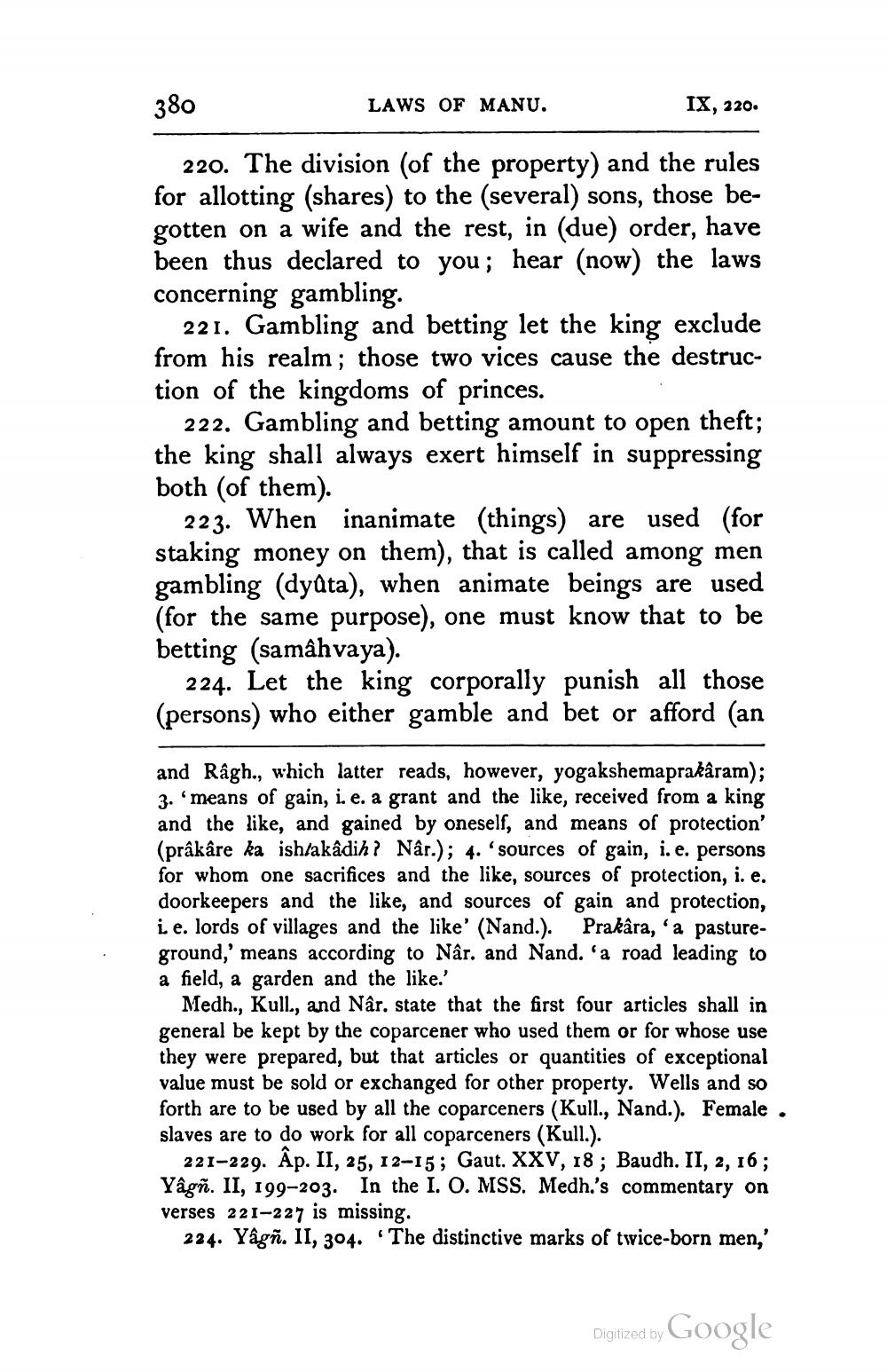________________
380
LAWS OF MANU.
IX, 220.
220. The division (of the property) and the rules for allotting (shares) to the (several) sons, those begotten on a wife and the rest, in (due) order, have been thus declared to you; hear (now) the laws concerning gambling.
221. Gambling and betting let the king exclude from his realm; those two vices cause the destruction of the kingdoms of princes.
222. Gambling and betting amount to open theft; the king shall always exert himself in suppressing both (of them).
223. When inanimate (things) are used (for staking money on them), that is called among men gambling (dyata), when animate beings are used (for the same purpose), one must know that to be betting (samâhvaya).
224. Let the king corporally punish all those (persons) who either gamble and bet or afford (an
and Râgh., which latter reads, however, yogakshemaprakâram); 3. means of gain, i.e. a grant and the like, received from a king and the like, and gained by oneself, and means of protection' (prâkâre ka ish/akâdih? Nâr.); 4. 'sources of gain, i.e. persons for whom one sacrifices and the like, sources of protection, i. e. doorkeepers and the like, and sources of gain and protection, i e. lords of villages and the like' (Nand.). Prakara, 'a pastureground,' means according to Nâr. and Nand.'a road leading to a field, a garden and the like.'
Medh., Kull., and Nâr, state that the first four articles shall in general be kept by the coparcener who used them or for whose use they were prepared, but that articles or quantities of exceptional value must be sold or exchanged for other property. Wells and so forth are to be used by all the coparceners (Kull., Nand.). Female . slaves are to do work for all coparceners (Kull.).
221–229. Ap. II, 25, 12-15; Gaut. XXV, 18; Baudh. II, 2, 16; Yâgñ. II, 199–203. In the I. O. MSS. Medh.'s commentary on verses 221-227 is missing.
224. Yagñ. II, 304. The distinctive marks of twice-born men,'
Digitized by Google




